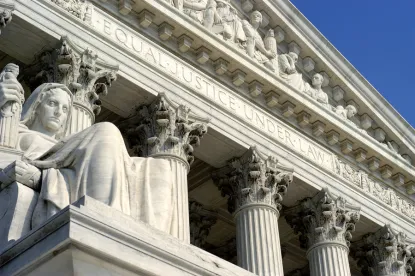The U.S. Supreme Court disagreed with the Ninth Circuit today, finding that a U.S. citizen whose spouse’s immigrant visa application was refused on security grounds did not have a right to an explanation for the visa denial, nor did she have due process rights to seek judicial review of the consular officer’s denial.
The U.S. spouse, Fauzia Din, filed an immigrant visa petition for her Afghan spouse, Kanisha Berashk, in 2006. Mr. Berashk was originally told by the U.S. Embassy in Islamabad that his visa application was approved but, nine months later, he was told that his visa application was denied. The Embassy in Islamabad denied Mr. Berashk’s application pursuant to section 212(a)(3)(B), which renders inadmissible any foreign national who a consular officer has reasonable grounds to believe is engaged in or is likely to engage in terrorist activity. Ms. Din filed suit in district court and it reached the Ninth Circuit Court of Appeals, where the court held that the government could not deny the visa without providing specific information about the alleged terrorist activity. Rather than provide the information, the U.S. government filed a petition with the U.S. Supreme Court.
Justice Antonin Scalia, writing the 5-4 majority opinion for the Court, said that Ms. Din was not deprived of life, liberty, or property when the government denied her spouse’s immigrant visa application, so she was not due any process under the Constitution.



 />i
/>i

